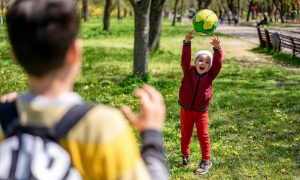A teacher* who runs Quran memorisation classes told the story of a 5-year-old boy who just couldn’t seem to remember the lines. “I was puzzled since the boy was doing so well the year before,” she said. “Then, inexplicably, he got from bad to worse. It is true that some kids would be faster and some would be slower, but from experience, I know that there should not be a significant difference. There’s a minimum level of memorisation they would be able to do no matter how ‘slow’ they are.”
The teacher asked the boy’s mother what she did at home to encourage the boy to complete his memorisation assignments. “I use a reward system,” said the mother. “I let him have his tablet after he has spent time memorising.” The teacher then asked her to observe discreetly what the boy did with the gadget. To her shock, the mother discovered that her son was accessing pornographic sites. “That explained the boy’s inability to memorise the Qur’an,” said the teacher.
Pornographic images arouse the brain, which causes it to produce a chemical called dopamine. Dopamine has many functions, one of which is to make us feel pleasure. Once the brain learnt to watch these images and got used to being ‘rewarded’ with dopamine, the child’s interest and capability to accomplish tasks that require effort and discipline declined.
Each year, children are exposed to pornographic images at ages that are younger and younger. Many of them stumbled upon pornographic sites and became hooked. Unsuspecting parents, on the other hand, find it a relief that their young children, when given gadgets, instantly are pacified with a click of a button. It would seem that parenting can never get any easier! Many parents are oblivious that they might unintentionally feed their children with an addiction that would inevitably cause great trouble. Certainly the children have no idea how their brains are affected by these images, to say the least.
Recovery from any kind of addiction is never easy.
As the addiction deepens, users not only become more impulsive, making it more likely that they’ll give into their cravings, but also whenever they encounter a stressful situation, they’re more likely to feel like they don’t have any way to deal with the stress other than by turning to porn’s temporary distraction. And the more they turn back to their habit, the deeper the brain pathways that lead back to using become, making it harder and harder to break the cycle. – [Ref: Fight The New Drug: Porn Addiction Escalates]
Technology has made it possible for many to learn what was previously beyond their reach. Online classes are so popular, about the only thing that can stop you from gaining knowledge is perhaps procrastination and laziness. Yet, technology opens the doors to other ‘resources’ that may harm the body, mind and soul.
The future of humanity lies in the hands of our young ones, yours and mine. No doubt we want them to be ‘addicted’ to thinking and doing good, helping others, and above all, the Qur’an, so that they remain guided throughout their lives. But we can’t raise them as such if we are not aware of, or choose to close our eyes to the reality of the world they are vulnerable to.
It always goes back to basic, timeless parenting practices – be kind to your children; be firm when you must, give them your time that they deserve. Letting young children surf YouTube and the like without supervision, trusting them when they are not ready for it might not be a wise thing, no matter how appealing it seems.
*Note: This true story was shared Ms Lina Karim of IPN (Islamic Parenting Network) during a press conference to kickstart the ‘Protection from Pornography’ Workshop.
Read this article in Malay: Lindungi Masa Depan Anak Anda








